EDN Activists’ Meeting Brno/Tisnov
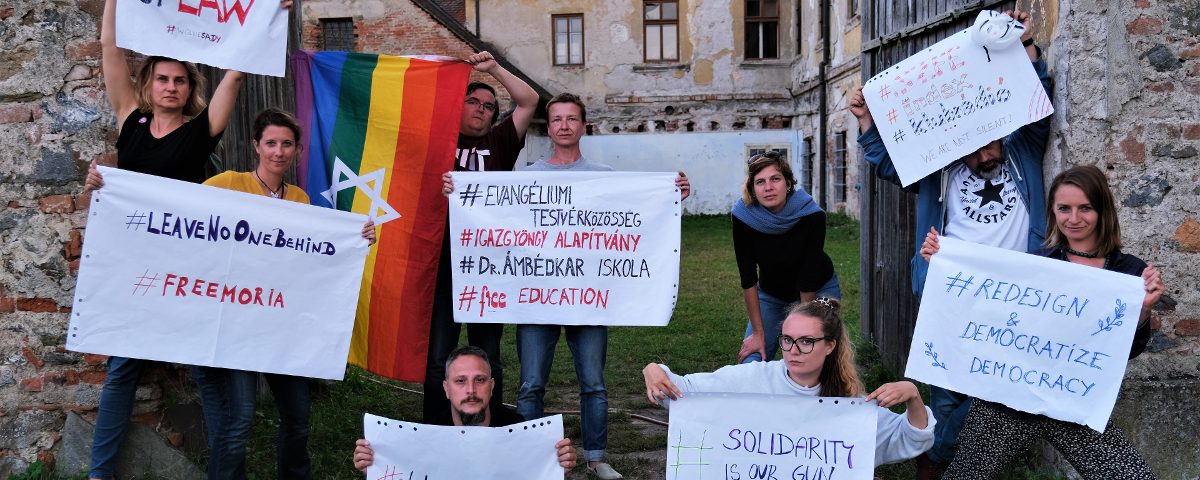

Recovering in solidarity
European Democracy Network Activists' Meeting in Brno/Tisnov, September 2020
After a long break, another EDN activist meeting took place between 11th-14th September in Brno/Tisnov. Notwithstanding the difficult circumstances of the pandemic situation, EDN activists continue to exchange their experiences and to support each other in their struggles for more democratic, inclusive and ecological societies.
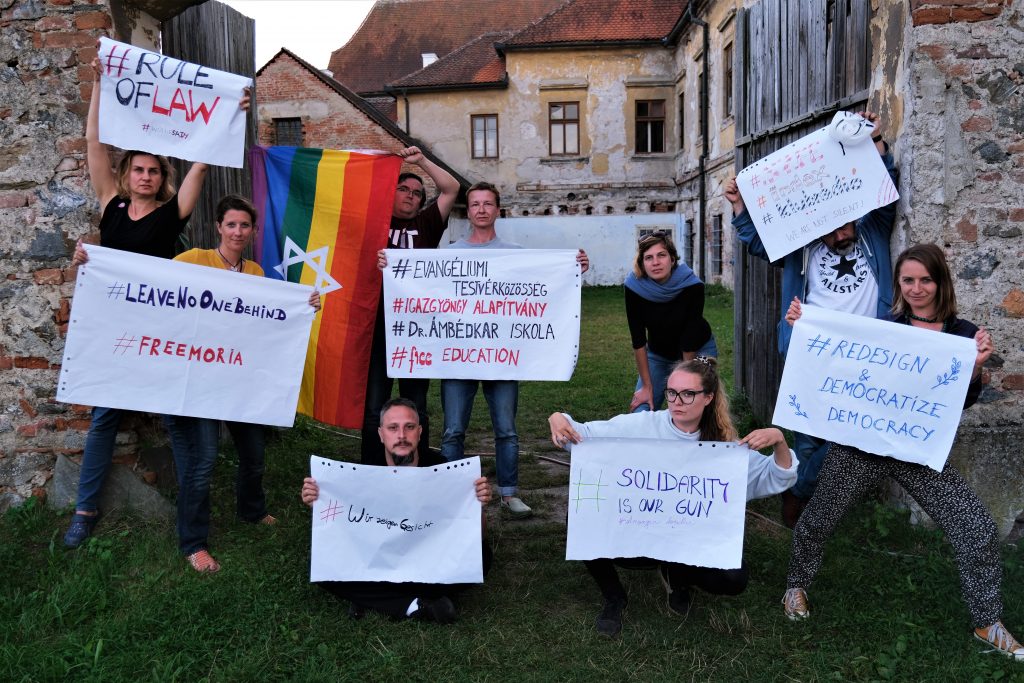
The weekend activities started after our arrival to Porta Coeli - an old convent close to Tisnov in the vicinities of Brno. The place itself is an excellent example of activism of local people who with the support of international groups of volunteers and project participants try to bring life back to the abandoned areas and transform them into collaborative spaces empowering local communities, using local resources and boosting local production.
The group of EDN activists had an opportunity to explore the beautiful surroundings of the convent starting with the forest therapy guided by Aleš Miklík. Based on Shinrin-Yoku - the practice (originating from Japan) combining a range of exercises and tasks in an outdoor environment - the session helped the group to release tension and stress accumulated in the last months.
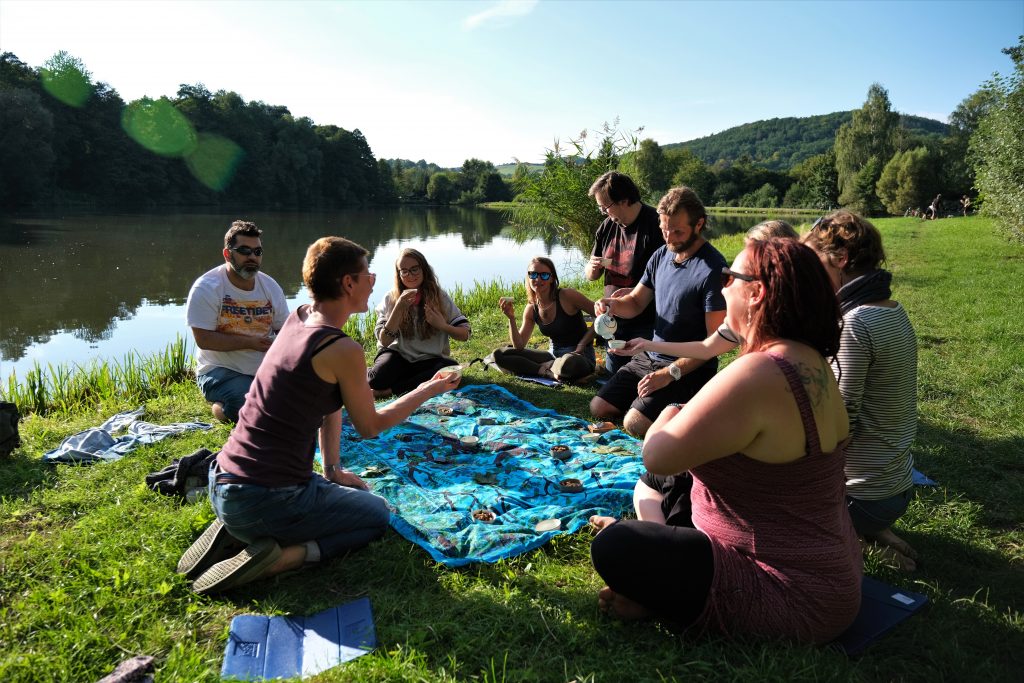
The multiple restorative benefits of forest therapy are proven scientifically (e.g. increasing the parasympathetic nervous system, improvements in physiological relaxation and the immune function recovery response, as well as immune, cardiovascular, and respiratory functioning, emotional healing, decreasing blood pressure, improving a person's general sleep-wake cycle, pain reduction, etc.). Additionally, it was a truly opening senses and nurturing experience. While the EDN programme puts specific focus on stress management, mindfulness and heightening awareness, it was a fantastic way to continue the realisation of the weekend programme fully relaxed and in good moods.
How to prevent burnout of activists
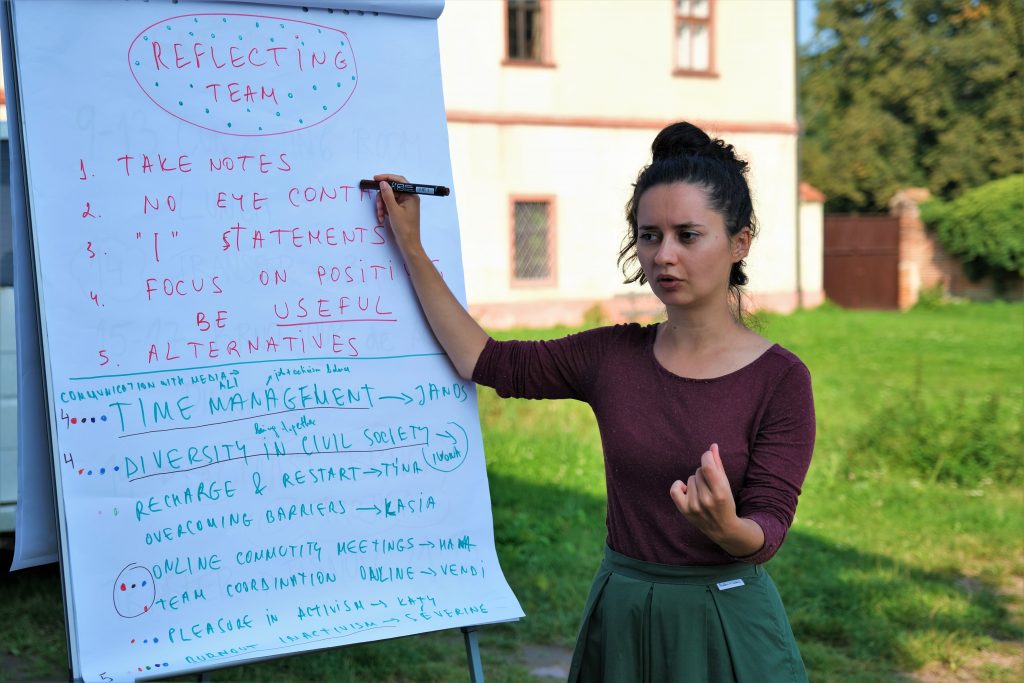 The following sessions were facilitated by Tania Dumbrava - an old member of EDN partner organisation from Czech Republic, Nesehnuti. As an experienced activist, psychologist and facilitator, Tania asked us to share our Corona-time experiences in a form Gallery of Activism. Using our creativity and manual skills we have exchanged on the growing challenges for civil society organisations related to the governmental restrictions, shortages of fundings for civil society projects and laws limiting basic freedoms (e.g. right to protest or freedom of movement) and we have updated each other on our latest activist achievements.
The following sessions were facilitated by Tania Dumbrava - an old member of EDN partner organisation from Czech Republic, Nesehnuti. As an experienced activist, psychologist and facilitator, Tania asked us to share our Corona-time experiences in a form Gallery of Activism. Using our creativity and manual skills we have exchanged on the growing challenges for civil society organisations related to the governmental restrictions, shortages of fundings for civil society projects and laws limiting basic freedoms (e.g. right to protest or freedom of movement) and we have updated each other on our latest activist achievements.
The Saturday morning session (the Consulting Room) was dedicated to the analysis of our current challenges (related mainly to burnout syndrome and time management), seeking help and tips from the group. The moderated interviews allowed us to go deeper into the roots of the problems we face in our activist reality and arrive to practical advice with the use of collective intelligence of the group. Tania Dumbrava proposed the group two methods: Reflecting team and Solution focused Balint Group.
Discovering activist Brno!
Like in the case of EDN meetings in other cities, we also had an opportunity to visit places connected to local activist groups and movements in Brno (guided by Milan Štefanec - one of the member co-founders of Nesehnuti). While visiting the important spots from history of Brno activism we have heard the stories of e.g. anti-military-weapon demonstrations, anti-fascist blockages, actions condemning the armed conflict in Chechnya and events organized by radical catholic feminists. During the Citizens Dialogue event which brought the attention of many locals, we could continue to explore the stories of local activists and connect with other people from Brno who believe that change towards more just, fair and sustainable societies is possible. The evening Activist Brno was organized in cafe Troika by Nesehnuti with local partners (Hnuti Duha and & CKO).
Non-hierarchical organisation and non-violent communication
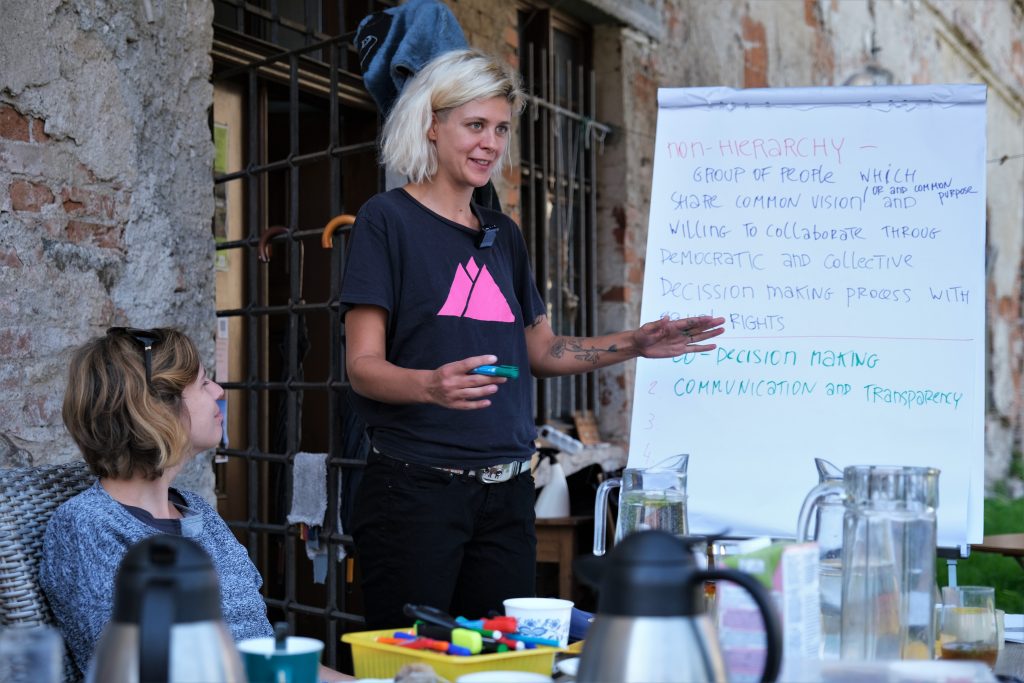 On the last day of EDN meeting we had a training on non-hierarchical organisation, its challenges and advantages. The workshop led by Anna Demchuk (Nesehnuti) helped us to define and understand better the basic principles, ideas and mechanisms behind flat organizational structures (such as: co-decision making, communication, transparency, rotation of tasks, roles and responsibilities, collective rule-making, teamwork, etc.). We also had a chance to reflect about their challenges and advantages basing on concrete examples of organisations and companies run based on a non-hierarchical model.
On the last day of EDN meeting we had a training on non-hierarchical organisation, its challenges and advantages. The workshop led by Anna Demchuk (Nesehnuti) helped us to define and understand better the basic principles, ideas and mechanisms behind flat organizational structures (such as: co-decision making, communication, transparency, rotation of tasks, roles and responsibilities, collective rule-making, teamwork, etc.). We also had a chance to reflect about their challenges and advantages basing on concrete examples of organisations and companies run based on a non-hierarchical model.
The afternoon session instead was on the subject of non-violent communication. Our trainer, Barbara Herucová, used Theater and improvisation techniques to make us experience the four components of non-violent communication: observation, feelings, needs and request, and reflect on their counterparts: interpretation, thoughts/ideas, strategies and order.
As usual the meeting was also full of informal moments of sharing, caring of each other and simply enjoying spending time together. The camp fire, collective cooking and walks in the nature definitely helped us to recharge energies and prepare ourselves for the next months of insecurities and threats in times of Corona.
More photos of this four days EDN meeting on our Flickr account

